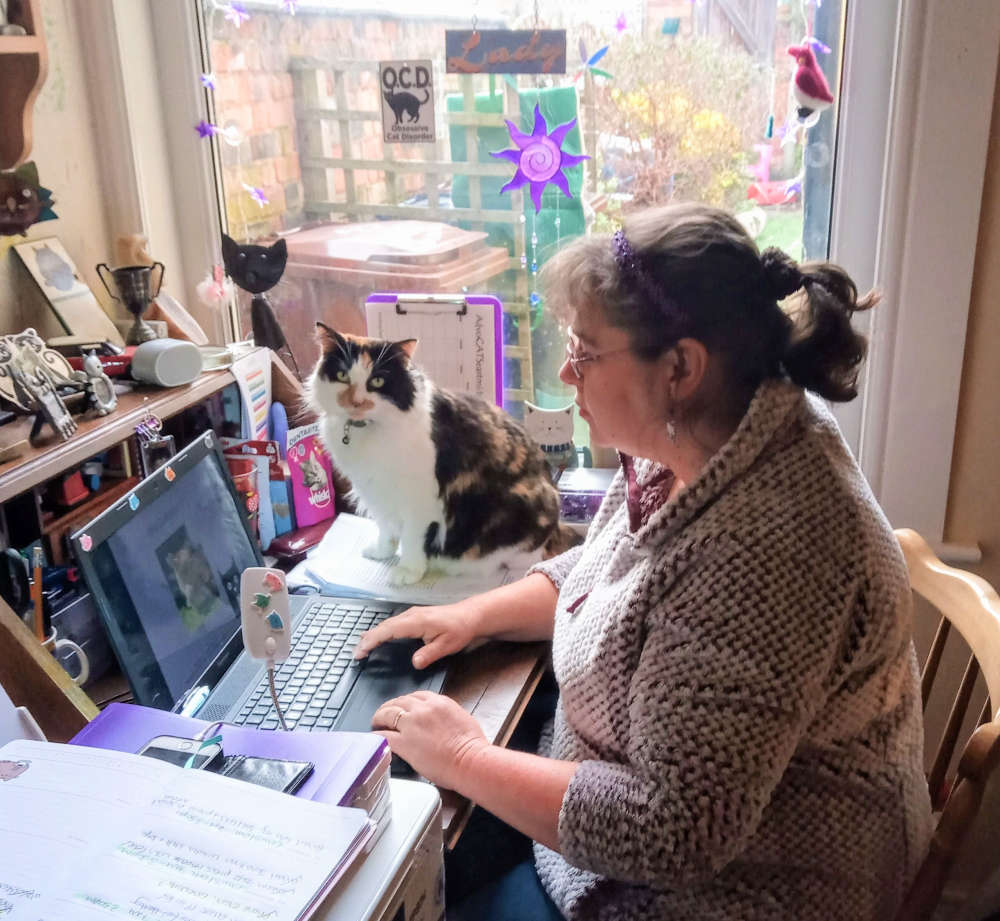
New figures released from The Alzheimers Society have laid bare worrying shortcomings in the quality of home care provided to people living with dementia.
The charitys findings reveal how many family members struggle to access quality care for loved ones with the condition.
Almost a third (31%) of family carers reported home visits from care workers were too short. As a result, people with dementia were left feeling disorientated and confused and having to choose between being fed or having a wash.
Shockingly, estimates suggest that nearly 8,000 carers across the UK felt the need to supervise visits by professionals because they were concerned about poor or inadequate dementia training.
The findings, based on peoples experiences of accessing care in the spring, come as The Alzheimers Society ramps up the pressure on the Government ahead of the spending review and Autumn budget on 27 October.
The charity is calling for an immediate cash injection of at least £3.9bn to stabilise the social care sector to pre-pandemic levels.
There are 850,000 people living with dementia in the UK, including more than 69,500 people in East Midlands.
They have been the worst hit by the pandemic, accounting for one in four deaths from coronavirus, with excess deaths from dementia in the community up by 65% over the same period.
The charitys survey findings are released following Boris Johnsons speech at the Conservative party conference in which he promised to get social care done. Meanwhile, Labours recent pledge to provide personalised care to help people stay at home shows clear cross-party consensus to tackling social care at last
An Alzheimers Societys investigation found a third of people affected by dementia havent been getting the support they need, with 82% of those who felt this saying they believed their loved ones with dementia could have stayed at home longer if theyd had more support.
Some 44% of these respondents felt they could have delayed a loved one going into a care home for at least a year, which would have massively eased the strain on the care home sector.
Family carers have borne the brunt of the failing system, with most feeling completely exhausted, reporting a decline in their mental or physical health due to increased pressures.
The recent figures also reveal deepening pressures, with 20% of family carers reporting battles to access the care they need, 12% being refused breaks from care and 5% being completely refused professional home care.
A month after the Governments social care reform announcement and ahead of the vital White Paper on the quality of social care, Alzheimers Society is calling on the Government to put people affected by dementia at the heart of their social care plans and increase the access and quality of care, with a clear timetable for long-term reform which considers funding.
By far the majority of social care users are people with dementia about 60% of those using home care. When delivered well, home care allows people to stay in a place they know and love for as long as possible, surrounded by those who know and love them the most.
However, two thirds of professional carers do not have any form of dementia training and 43% of homecare workers are asking for more dementia training.
Without this vital training, carers fail to understand the unique nature of dementia or the impact of the symptoms, and cannot deliver person-centred, quality care in the time constraints they are working under leaving families battling a broken system to get the quality care for their loved ones.
The Alzheimers Societys recently launched their Stabilise, Energise, Realise report, detailing a comprehensive 10-year plan for social care reform, which outlines how to first stabilise the system after years of neglect and the devastating impact of the coronavirus pandemic, then energise it through technology and personalisation, and finally to realise a revamped system we all want to grow old in, offering care on an equal footing with the NHS.
Judith King, Head of Services, said: Families have been struggling to get the care they need over the tough spring months of the pandemic, losing potential years at home with their loved ones.
But it doesnt have to be this way. We can cure the care system, if the Government puts dementia at the heart of their plans to boost the quality of the system.
Just to return the social care sector to pre pandemic levels, we need an immediate cash injection of £3.9bn. The Government must consider this in the upcoming spending review and then produce a clear timetable for delivering long-term reform. They owe it to the 400,000 people with dementia receiving care at home - as they, their family carers and professional carers have all borne the brunt of social care failings throughout the pandemic.
People with dementia must get high quality, accessible social care, free at the point of use like the NHS giving every person with dementia the quality care they deserve, and preventing devoted family carers being forced to plug the gaps.
In The Alzheimers Societys Stabilise, Energise, Realise Report, written in collaboration with the respected social care expert and former Special Adviser to ex-Secretary of State Matt Hancock, Richard Sloggett, the charity identifies seven key areas of recommendations to be followed in three phases setting out a plan to transform the sector over the next 10 years, ensuring everyone can access high-quality personalised care:
* Stabilise: stabilising and properly funding social care to deliver for all following years of neglect and the devastating impact of the coronavirus pandemic, this involves an immediate cash injection of around £7bn to get care conditions back to pre-pandemic levels
* Energise: energising to improve the quality of care for both home carers and within care homes, with technology, making it more personalised while coordinating with housing bodies (to support people to live more independently), as well as through efforts to secure a better paid, better skilled, and more valued workforce
* Realise: where care is offered on an equal footing with the NHS and we realise a system we all want to grow old in and be proud of.
Anyone can join The Alzheimers Societys Cure the Care System campaign for quality social care by visiting alzheimers.org.uk/curethecaresystem

 Own a ninja sword? Time to hand it in!
Own a ninja sword? Time to hand it in!
 459 e-scooters seized to date as action continues
459 e-scooters seized to date as action continues
 Weight-loss medication on the NHS - not yet available in Derbyshire - and future recipients will be 'select'
Weight-loss medication on the NHS - not yet available in Derbyshire - and future recipients will be 'select'
 Local pets charity criticises government's latest U-turn
Local pets charity criticises government's latest U-turn
 Government Trade Strategy must speed up export says Chamber
Government Trade Strategy must speed up export says Chamber




